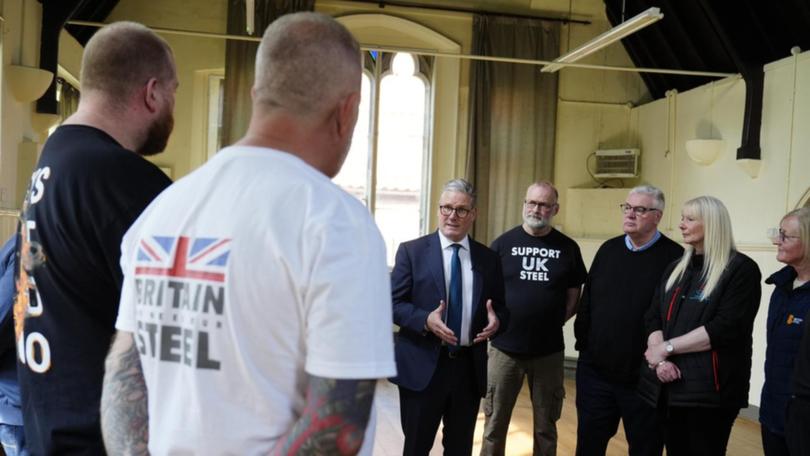Keir Starmer and UK government to take emergency control of British Steel from Chinese interests

The UK government has taken effective control of the country’s last remaining factory that makes steel from scratch from its Chinese owners, after MPs approved an emergency rescue.
Prime Minister Keir Starmer summoned MPs for the unusual Saturday sitting, only the sixth since World War II, to back legislation primarily aimed at blocking British Steel’s Chinese owners, Jingye Group, from closing the two massive blast furnaces at its Scunthorpe plant in the north of England that are key in the steelmaking process.
The bill, which was debated over several hours and which is now law after being given royal ascent by King Charles III, gives Business Secretary Jonathan Reynolds the power to direct the company’s board and workforce, ensure its 3000 workers get paid and order the raw materials necessary to keep the blast furnaces running.
Sign up to The Nightly's newsletters.
Get the first look at the digital newspaper, curated daily stories and breaking headlines delivered to your inbox.
By continuing you agree to our Terms and Privacy Policy.Jingye has said the Scunthorpe plant is losing 700,000 pounds ($A1.5 million) a day as a result of challenging market conditions and increased environmental costs.
The recent decision by US President Donald Trump to impose a 25 per cent tariffs on imported steel has not helped.
After the House of Commons passed the bill on a voice vote, Starmer arrived in Scunthorpe to meet workers, who were clearly relieved that the town’s steelmaking heritage, which stretches back about 150 years, has been preserved.
“You and your colleagues for years have been the backbone of British Steel and it’s really important that we recognise that,” Starmer said.
“It’s your jobs, your lives, your communities, your families.”
The relief in the town was evident during the interval of Scunthorpe United’s football match, where the crowd at the Attis Arena cheered on a few dozen steelworkers on the field of play.
The team is known as “The Iron” - a fond reflection of the town’s identity.
Starmer had been under pressure to act after Jingye’s recent decision to cancel orders for the iron pellets used in the blast furnaces.
Without them and other raw materials, such as coking coal, the furnaces would likely have to shut for good, potentially within days, as they are extremely difficult and expensive to restart once cooled.
That would mean the United Kingdom, which in the late 19th century was the world’s steelmaking powerhouse, would be the only country in the G7 without the capacity to make its own steel from scratch rather than from recycled material, which use greener electric arc furnaces rather than blast furnaces.
The repercussions would be huge for industries like construction, military and rail and make the country dependent on foreign sources for so-called virgin steel, a vulnerability that MPs from all political parties baulked at.
“We could not, will not and never will stand idly by while heat seeps from the UK’s remaining blast furnaces without any planning, any due process or any respect for the consequences and that is why I needed colleagues here today,” Reynolds told MPs.
Reynolds criticised Jingye for making “excessive” demands of the government in discussions in recent months, and that without the government’s intervention, the company would have “irrevocably and unilaterally closed down primary steel making at British Steel”.
Although the legislation does not transfer ownership of the plant to the state, Reynolds conceded it was a future possibility.
It is unclear what role Jingye, owner of British Steel since 2020, will have in the day-to-day running of the steelworks.
But should it fail to abide by the new laws, the company and its executives could face legal sanctions.
